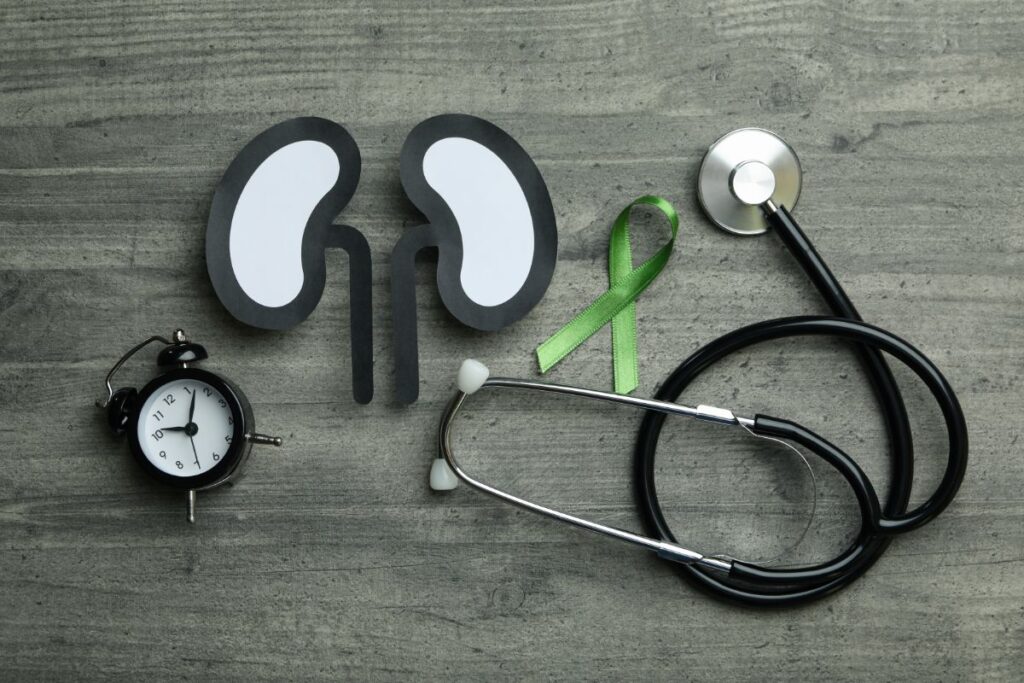What is end-stage renal disease (ESRD)?
- Symptoms of End Stage Renal Disease
- Causes of End Stage Renal Disease
- Risk Factors of End Stage Renal Disease
- Diagnosis of End Stage Renal Disease
The kidneys are the organs responsible for filtering waste and excess fluid from the blood as urine. Chronic kidney diseases cause the kidneys to lose function gradually. If you’re wondering what is end-stage renal disease (ESRD), it is the final stage of chronic kidney disease. With this condition, the kidney function falls lower than 10% of healthy kidney function. This means it can no longer function on its own to meet a person’s daily life needs.
When the kidneys cannot filter effectively, dangerous levels of waste and fluid build up in the body. This is why patients with end-stage renal disease need to go through dialysis or a kidney transplant to survive. In this article, we discuss further everything to know about end-stage renal disease including its symptoms, causes, risk factors, diagnosis, and possible complications.
Symptoms of End Stage Renal Disease

Because the kidneys are organs that can make up for lost function, early kidney disease often does not present symptoms until irreversible damage takes place. Some people may not know they have kidney disease until their kidney fails. However, it’s important to remember that kidney disease can be treated before it progresses to end-stage renal disease.
As chronic kidney disease progresses to end-stage renal disease, you may experience the following symptoms:
- Nausea and vomiting
- Loss of appetite
- Fatigue
- Malaise
- Headaches
- Loss of appetite
- Sudden weight loss
- Dry skin and persistent itching
- Problems or changes with urinating
- Chest pain, if fluid builds up around the lining of the heart
- Changes in skin color
- Shortness of breath, if fluid builds up in the lungs
- Swelling of legs and hands
- Numbing of the feet and hands
- Headaches
- Sleeping problems
- Decreased mental sharpness
- Muscle cramps
- Excessive thirst
- Bone pain
- Easy bruising
- Frequent hiccups
- Bad breath
Causes of End Stage Renal Disease
Most kidney diseases attack the nephrons, which are the microscopic filtering and nutrient-absorbing units of the kidney. As a result, the kidneys’ blood filtering function becomes impaired, which eventually leads to end-stage renal disease. Diabetes and hypertension are the most common causes of end-stage renal disease.
With diabetes, the body fails to break down glucose correctly. Having high levels of glucose in the blood damages the nephrons. With hypertension, there is increased pressure on the nephrons. The pressure and damage hamper blood filtration.
Some of the other causes of ESRD include:
- Prolonged blockage of the urinary tract from conditions like enlarged prostate, kidney stones, or certain types of cancer.
- Glomerulonephritis – an inflammation of the kidney’s filtering units.
- Interstitial nephritis – an inflammation of the kidney’s tubules.
- Polycystic kidney disease.
- Vesicoureteral reflux – when urine flow back up to the kidneys.
- Congenital abnormalities.
Risk Factors of End Stage Renal Disease
Certain factors cause chronic kidney disease to progress more quickly. This means certain patients are at higher risk of developing end-stage renal disease, such as those who have:
- Diabetes.
- Glomerulonephritis.
- Polycystic kidney disease.
- Hypertension.
- Interstitial nephritis.
- Tobacco use.
- Family history of kidney failure or relatives with ESRD.
- Autoimmune conditions, like lupus.
- Older age.
- Severe urinary tract problems.
- Drug abuse.
- Frequent use of medications that could be damaging to the kidney.
Diagnosis of End Stage Renal Disease
There are several tests done to check kidney function and diagnose end-stage renal disease. Some of the tests include:
- Urinalysis: This will help the doctor check for blood and protein in your urine, which means that your kidneys are not filtering waste properly.
- Serum creatinine test: This will help the doctor check if there is creatinine (a waste product needed to be filtered by the kidneys) build up in your blood.
- Blood urea nitrogen test: This will help the doctor check how much urea nitrogen (a waste product needed to be filtered by the kidneys) is in your blood.
- Estimated glomerular filtration rate (GFR): This test helps the doctor find out how well the glomeruli filters waste. A GFR of 15 or lower can indicate kidney failure or end-stage renal disease.
Key Takeaway
This article discusses just some of the things to know about what is end-stage renal disease (ESRD). But why wait until you are in ESRD?
Perpetual Help Medical Center – Las Pinas, with 45 years of expertise, provides the best possible care to those who fear that they might have developed CKD (Chronic Kidney Disease). The Kidney Transplant Unit has a multidisciplinary team of medical and surgical specialists who utilize state of the art diagnostic, dialysis and kidney transplant procedure in the Philippines. The main mission is to make sure that the entire kidney transplant process is earlier and less stressful for the patient.
Click here to contact us for more details!

